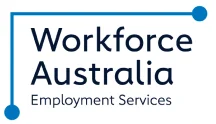5 Important Questions To Ask Your Disability Employment Agency
A Disability Employment Agency, also known as DES providers are a range of not-for-profit organisations that work specifically to support people living with a disability, health condition or injury to prepare for and engage in sustainable employment.
A Disability Employment Agency, also known as DES providers are a range of not-for-profit organisations that work specifically to support people living with a disability, health condition or injury to prepare for and engage in sustainable employment.
Disability Employment Services are made of up two areas:
- Disability Management Services (DMS) assist job seekers with short term injury or illness who require support in the work environment on an interim basis.
- Employment Service Support (ESS) assists job seekers with a permanent disability or injury who require continued and consistent support in the work environment.
Questions to ask your DES agency
1. Am I eligible?
Job seekers looking to engage a DES provider can be eligible if they:
- Have a disability, health condition or injury
- Are an Australian citizen or hold a eligible visa
- Are above the age of 14
- Are at or above the minimum working age for their territory or state
- Are not studying full time
- Have a valid Employment Services Assessment (ESAt) or Job Capacity Assessment (JCA) recommending DES with a Future Work
- Capacity of eight or more hours per week
- Are not working above their assessed work capacity
Job seekers can access DES by going through the Department of Human Services or by contacting a DES provider directly.
2. What funding is available?
Disability Employment Service providers receive payments to assist jobseekers in finding employment. Levels of funding vary depending on the service (Disability Management service or Employment Service Support) that the jobseeker requires.
It is common that an eligible persons level of funding will change throughout their time in the program.
Funding can fall into three different categories:
- Service fees: advance payments every 13 weeks to assist in the acquisition of employment
Outcome fees: payments that are made after the participant has achieved employment of education for a particular length of time - Ongoing Support fees: payments made to those who require further assistance in maintaining employment
Those living with a disability may be eligible to access the Employment Assistance Fund (EAF) which can help cover the expenses of any necessary adjustments that need to be made to the workplace in order for them to be able to go about their job. These may include, but are not limited to:
- Workplace equipment or modifications such as access ramps, alternate lighting, modified appliances, electronic equipment
- Modifications to work vehicles essential to regular duties
- Communications equipment such as Braille printers, assistive listening devices and emergency alert systems
- AUSLAN (Australian Sign Language) interpretive services
- Disability awareness training for the workplace
3. What services are available?
Multiple services and programs are available for eligible participants, which assist in the lead up to and through the duration of employment.
Existing services include:
- Wage subsidies that assist employers to engage participants
- Work Based Personal Assistance helps to fund support services for those participants who need extra assistance in the workplace
- Mobility Allowance can help to cover the cost of transport to and from work, studying, or training for those not able to use public transport
- The Relocation Assistance to Take Up a Job programme can reimburse expenses if relocation is required to obtain employment
- Personal Helpers and Mentors Employment Services helps those living with serious mental illness
- Jobs in Jeopardy assistance helps those who may be in a position where their job is at risk due to injury, illness or disability
- National Work Experience programme helps those interested in gaining paid or unpaid work to develop skills and experience
- Community Development programme helps those in remote locations find employment
- Skills For Education and Employment helps to improve essential reading, writing, maths and speaking skills
Not all services may be of benefit or available to all participants. It is important to ask your Disability Employment Service provider which services may be of benefit to you.
4. What are the requirements?
It is common that DES participants need to meet certain requirements called Mutual Obligation Requirements in return for payments. A Job Plan will be developed and may include tasks such as attending appointments, looking for a certain numbers of jobs in a given time or completing training courses.
5. What if I do not meet the requirements?
Some DES participants may only have volunteer activities. There are no repercussions if these activities are not met.
For all non-volunteer participants, failure to meet the specified requirements may result in their program being paused, and in some cases payments reduced or stopped.
Disability Employment Support providers are a useful way to receive assistance for those living with disability, illness or injury. They provide a bridge between the client and employer and can often be helpful in up-skilling and seeking reimbursement for expenses.
Useful links & references
- Job Active Website – Disability Employment Services
- Department of Social Services Website – Disability Employment Services
- PDF from Job Active – Available services and programmes for people with disability
- Australian Network on Disability Website – Employing people with disability






